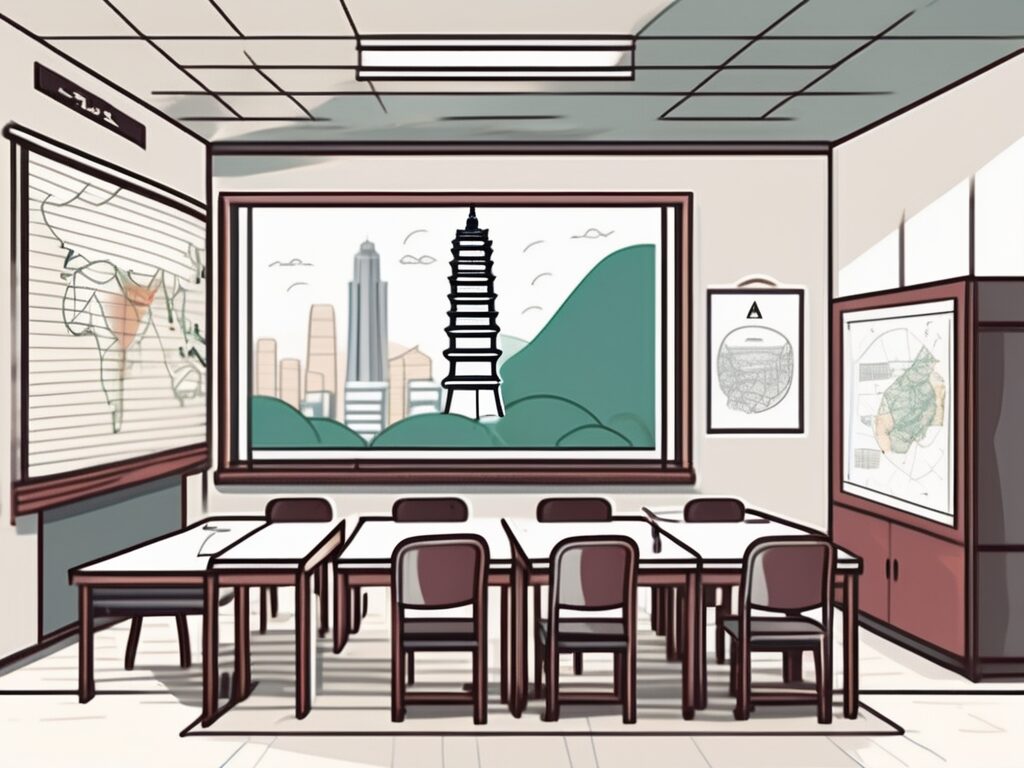Education is a fundamental pillar in any society. It shapes the future leaders, innovators, and workforce. However, the process of imparting knowledge is not without its challenges, especially when considering different cultural contexts. In this light, we delve into the teaching challenges experienced in two diverse regions, Taiwan and Qatar.
Taiwan’s Educational Landscape
Taiwan, an island nation in East Asia, is renowned for its robust education system. However, beneath the surface of high literacy rates and impressive PISA scores, there are hurdles that educators grapple with.
One of the primary challenges is the high pressure and competitiveness within the education system. This pressure often leads to high stress levels among students, which can affect their mental health and overall well-being.
Language Barriers
Language barriers pose another significant challenge in Taiwan’s education system. While Mandarin is the official language, there are various dialects and languages spoken across the island, including Hakka and Formosan languages. This linguistic diversity can make it difficult for teachers to communicate effectively with all students, especially those from minority language groups.
Furthermore, the global push for English proficiency has put additional pressure on Taiwanese teachers. Many are expected to teach subjects in English, despite not being native speakers. This situation often leads to a compromise in the quality of education delivered.
Curriculum and Teaching Methods
The curriculum in Taiwan is often criticised for being too rigid and exam-focused. The emphasis on rote learning and memorisation over critical thinking and creativity can stifle students’ intellectual growth.
Moreover, the traditional teacher-centred approach to teaching is still prevalent in many Taiwanese schools. This method can limit student engagement and participation, making learning a passive rather than active process.
Qatar’s Educational Landscape
Qatar, a small but wealthy nation in the Middle East, has made significant strides in education over the past few decades. However, like Taiwan, it faces its own unique set of challenges.
One of the main issues is the rapid modernisation and westernisation of the education system. While this has brought about many positive changes, it has also led to a clash of cultures and values.
Language and Cultural Issues
Language is a significant issue in Qatar’s education system. With a large expatriate population, English has become the medium of instruction in many schools. However, this has led to concerns about the erosion of Arabic language and culture.
Moreover, the integration of Western teaching methods and curricula has raised questions about cultural relevance and sensitivity. Many educators struggle to balance the need to prepare students for a globalised world while preserving their cultural identity and heritage.
Quality and Inclusivity in Education
Despite the high investment in education, there are concerns about the quality of education in Qatar. The country’s PISA scores, for instance, are significantly lower than those of Taiwan.
Furthermore, inclusivity is a major issue. Many Qatari schools are segregated by gender, and there are limited resources for students with special needs. This lack of inclusivity can hinder the development of a diverse and tolerant society.
Comparative Analysis: Taiwan and Qatar
While Taiwan and Qatar have vastly different cultural and historical contexts, their educational challenges share some common threads.
Both countries face language issues, albeit in different ways. In Taiwan, the challenge lies in accommodating linguistic diversity and the pressure to teach in English. In Qatar, the concern is about maintaining Arabic language and culture amidst the dominance of English.
The quality of education is another shared concern. In Taiwan, the issue is more about the nature of the curriculum and teaching methods, while in Qatar, it’s about the overall quality and inclusivity of education.
Ultimately, these challenges highlight the complexity of education. It’s not just about imparting knowledge, but also about nurturing well-rounded individuals who can thrive in a rapidly changing world. As such, educators in both Taiwan and Qatar, and indeed around the world, have a crucial role to play in shaping the future of education.
Elevate Your Teaching Career with IPGCE
Understanding the complexities of education in diverse environments like Taiwan and Qatar is just the beginning. If you’re an educator aiming to overcome the challenges of stringent qualifications, limited career progression, professional isolation, or adapting to global education systems, IPGCE is your gateway to success. Join the UK’s #1 Teacher Training Course, the International Postgraduate Certificate in Education, and experience a transformative journey that enhances your credentials, connects you to a global network, and propels your career forward. Embrace the opportunity to balance professional development with your current commitments through our flexible online study options. Don’t let inadequate qualifications hold you back. Join the iPGCE program now and become the educator you aspire to be.

